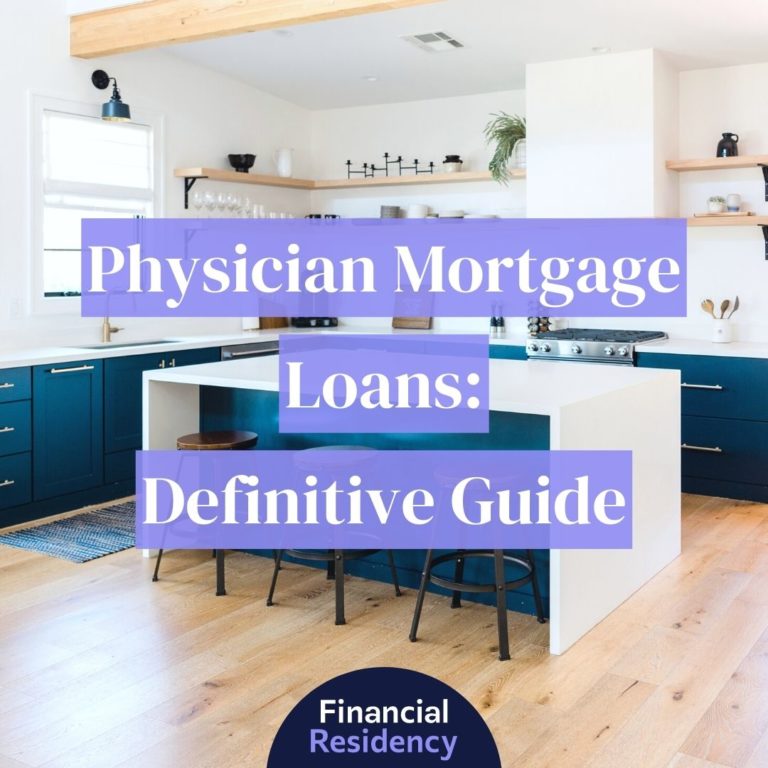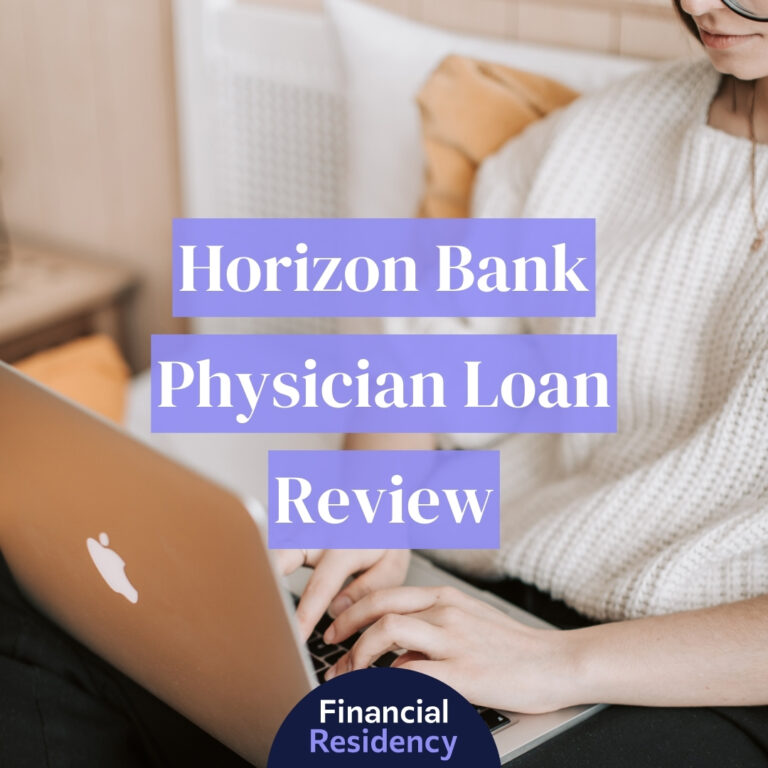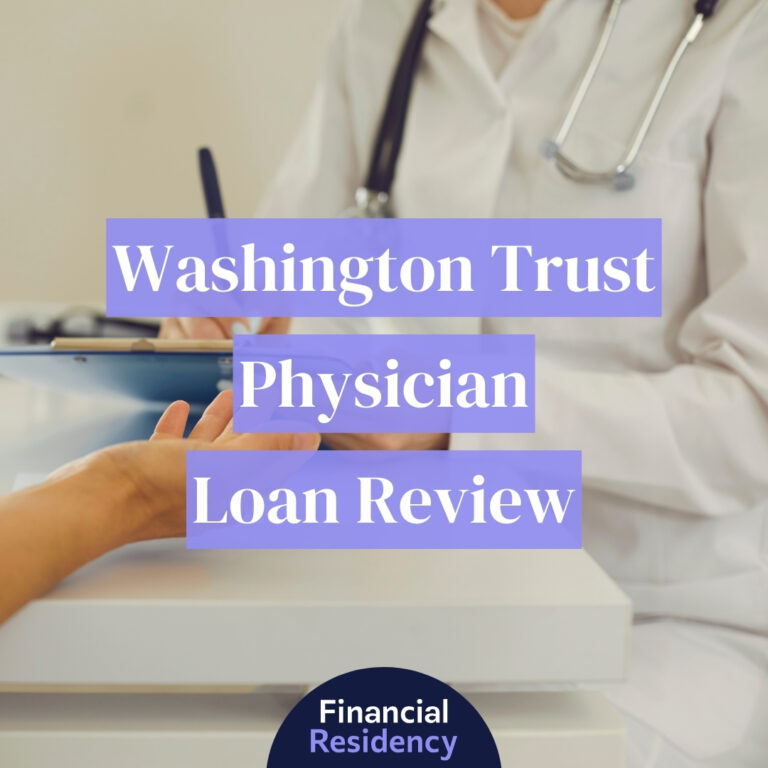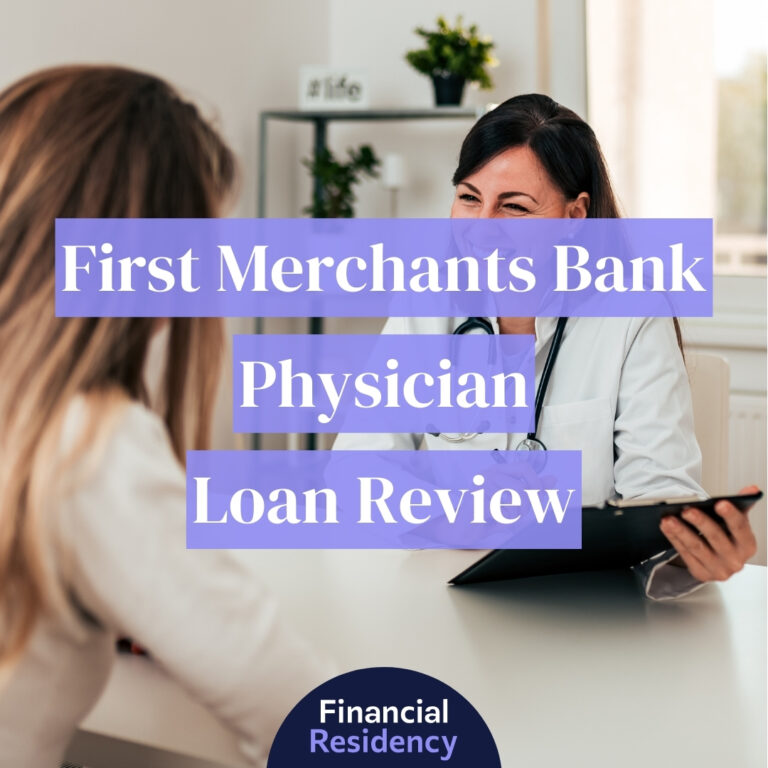If you want to join the 4,500 practicing physicians who call The Granite State their home, your dream of homeownership could soon be a reality with physician mortgage loans in New Hampshire.
New Hampshire offers its 1.3 million residents many different lifestyles. Whether you choose to live near the mountains or the many rivers and lakes, you’re bound to find a beautiful place to call home while remaining within commuting distance to Boston and other New England attractions.
While New Hampshire is small in terms of population and geographic area it’s home to world-renowned universities and quality healthcare. Whether it’s your residency program, joining a new practice, or moving closer to your family that brings you to New Hampshire, a doctor home loan can make it possible.
Working with a lender who is knowledgeable about the financial needs of medical professionals in New Hampshire will be a valuable resource to you throughout your home-buying journey.
8 Best New Hampshire Physician Home Loan Lenders
Here are the top physician mortgage loan lenders in NH:
Discover The Best Lenders in New Hampshire Answer just a few questions about your career, where you're buying, and how much you want to borrow. Our service will then show you the exact programs you're eligible for from vetted physician loan specialists who will guide you through every step of the process – obligation-free!
1. BMO Bank
- BBB Grade: A+
- JD Power Score: 805
BMO Bank, formerly known as BMO Harris Bank, extends its Physicians’ Mortgage Program to doctors of medicine (MD), doctors of dental surgery (DDS), doctors of dental medicine (DMD), doctors of osteopathic medicine (DO), and current residents and fellows.
Physicians must be currently licensed to qualify. Loans may be used to purchase or rate/term refinance a primary residence. Eligible property types include 1-2 unit buildings, single-family homes, condominiums, and townhouses.
The program will provide up to $1.5 million in financing with just a 5% down payment or up to $2 million with just a 10% down payment.
The program is open to physicians at any stage in their careers, but those who have been practicing for more than 10 years will be required to put down a 10% down payment regardless of the loan amount. All down payment options exclude private mortgage insurance (PMI).
The underwriting department will also make flexible considerations for student loan debt, which can make it easier to qualify.
They also don’t impose income history requirements. Instead, upcoming physicians can provide proof of a signed employment contract that starts within 90 days of closing.
Loans may be structured as fixed or adjustable-rate mortgages. Borrowers who open a qualifying BMO Bank account may even be eligible for a $500 closing cost discount when they enroll in AutoPay.
2. U.S. Bank
- BBB Grade: A-
- JD Power Score: 820
U.S. Bank offers its physician mortgage program to residents, fellows, medical doctors, and doctors of osteopathic medicine. The program will provide up to $2.5 million with flexible down payment options––all of which waive PMI.
Loans up to $1 million can be secured with a 5% down payment, but larger loan amounts require larger down payments. Loans up to $1.5 million require at least 10% down and loans up to $2 million require at least 15% down.
Borrowers must have a 710 minimum credit score to qualify, but the program is flexible in other departments. For example, underwriters will use the actual monthly payment for borrowers on an income-driven repayment plan or 2% of the total loan balance for those in deferment.
Borrowers who open a platinum checking account can qualify for a 0.25% lender credit up to $1,000.
Loan officers make the application process seamless from start to finish by providing extensive checklists and responsive support.
3. TD Bank
- BBB Grade: A+
- JD Power Score: 828
TD Bank designed its physician loan program for practicing physicians and dentists (MD, DO, DPM, DDS, and DMD), licensed medical residents and fellows, and physicians who have been self-employed for at least two years.
Loans may be used to purchase a single-family residence, condominium, or property in a planned unit development. The bank may also provide financing for co-ops in select markets.
Loans up to $1 million don’t require a down payment. Loans up to $1.5 million require a 5% down payment. The program has a maximum loan amount of $2 million with a 10.01% down payment. All down payment options waive PMI.
Borrowers have the option of fixed and adjustable-rate mortgages. New employment contracts may be used as proof of earning potential.
4. Evolve Bank & Trust
- BBB Grade: A+
- JD Power Score: N/A
Evolve Bank & Trust offers up to $2 million to Medical Professionals in various specialties. The following medical professionals, including residents and fellows, within 10 years of completing their residency programs:
- MD
- DO
- DDS
- DMD
- PA
- NP
- DVM
- CRNA
- DC
- OD
- DPM
- PharmD
- Clinical Nurse Specialists
Loans may be used to purchase 1-4 unit properties, single-family homes, condominiums, and new constructions. Underwriters will work with borrowers on an individual basis to calculate the debt-to-income (DTI) ratio and approve lower FICO scores than its competitors.
The program will provide 100% financing on loans up to $1 million, but loans up to $1.25 million require at least 5% down. Loans up to $1.5 million require a 10% down payment and loans up to $2 million require at least 15% down. Minimum reserves may be required.
Borrowers who have not yet started working can qualify with a future-dated employment contract. Gift funds and non-occupant co-signers may also be accepted.
The dedicated team of loan officers is knowledgeable about the unique needs of medical professionals and will work to provide a loan product that fits those needs.
5. Flagstar Bank
- BBB Grade: NR
- JD Power Score: 781
Flagstar Bank’s Professional Loan Program is one of the most inclusive physician loans on the market. It doesn’t only include medical professionals. Instead, it extends special financing opportunities to high-income earners across several industries.
The following professionals must be within 10 years of beginning their careers to qualify:
- Medical Resident (Educational License)
- Medical Doctor (MD)
- Doctor of Dental Surgery (DDS)
- Doctor of Dental Medicine (DMD)
- Doctor of Optometry (OD)
- Doctor of Ophthalmology (MD)
- Doctor of Pharmacy (PharmD)
- Doctor of Podiatric Medicine (DPM)
- Doctor of Osteopathy (DO)
- Physician Assistant (PA)
- Registered Nurse (RN)
- Nurse Anesthetist (CRNA)
- Nurse Practitioner (NP)
- Clinical Nurse Specialist
- ATP Pilot
- Certified Public Accountant (CPA)
- Attorney (JD)
- Veterinarian (DVM)
Borrowers can qualify for 100% financing on loans up to $1 million with a 720 credit score. Low down payment options are available for loans up to $1.5 million.
While PMI isn’t required, all of Flagstar Bank’s professional loans are structured as adjustable-rate mortgages, so borrowers will have to be financially honest about the monthly payments they can reasonably afford.
The bank will also accept interested party contributions, or gift funds, toward the down payment, closing costs, or cash reserve requirements.
6. Huntington Bank
- BBB Grade: A+
- JD Power Score: 821
Huntington Bank’s physician home loan program is open to medical doctors with an MD, DO, DDS, DVM, or DMD degree. The lender requires proof of sufficient income, cash reserves, and an active employment contract. The required minimum reserves will depend on the total loan amount.
The program will provide 100% financing on loan amounts of up to $1 million, 95% financing on loan amounts of up to $1.25 million, and 90% financing on loan amounts of up to $2 million. The required down payment depends on each borrower’s credit approval.
The program also offers refinances. Borrowers can rate/term or cash-out refinance, but cash-out refinances will be limited to $250,000 while all other funds must go toward debt repayment.
Loans may only be used to purchase or refinance a qualifying primary residence. Fixed and variable interest rate options are available.
7. KeyBank
- BBB Grade: A+
- JD Power Score: 809
KeyBank extends up to $3.5 million in home financing to the following medical professionals:
- Medical Doctors (MD)
- Doctor of Osteopathic Medicine (DO)
- Doctor of Podiatric Medicine (DPM)
- Doctor of Dental Surgery (DDS)
- Doctor of Dental Medicine (DMD)
Interns, residents, fellows, researchers, and clinical professors are also included. The program will provide 95% financing, but exact loan amounts and down payment requirements are subject to credit approval.
Loans may be used to purchase a new home or rate/term or cash-out refinance a home qualified borrowers already own. Unlike many physician mortgage loans, KeyBank extends financing to primary residences and second homes.
Eligible property types include single-family homes, condominiums, and planned unit developments.
KeyBank loan officers will provide personalized service that meets the complex needs of medical professionals from various walks of life.
8. NEO Home Loans
- BBB Grade: A+
- JD Power Score: N/A
NEO Home Loans built its physician mortgage loan to the following medical designations:
- MD
- DMD
- DDS
- DO
- PharmD/RPH
- DC
- DVM
- OD
- DPM
- DCH
J-1 visa holders are also eligible.
The program will provide 100% financing on loans up to $1 million or 95% financing on loans up to $2 million.
Loans may be used to finance 2-unit properties, which can help physicians generate additional income if they rent out one unit while living in the other. Borrowers may also apply gift funds to the down payment.
Like other physician loan programs, borrowers won’t have to worry about PMI or student loan debt.
How Physician Mortgage Loans Work in New Hampshire
In New Hampshire, the conforming loan limit is $726,200, which means all mortgages above this limit are classified as jumbo loans.
While the overall median home price is a little over $429,000, these prices are continuing to rise year over year. The most desirable cities in New Hampshire include Rye, New Castle, and Hanover––all of which often have real estate prices well into six figures.
A physician loan in New Hampshire can help doctors and other medical professionals break into these neighborhoods and purchase their dream homes without worrying about the obstacles they may face if they were to choose a conventional or government-backed loan program.
These obstacles often include high student loan debt skewing debt-to-income ratio, lack of income history, and limited savings. Physician mortgage lenders work with highly qualified medical professionals by using flexible underwriting guidelines.
Exclude Student Loan Debt
Physician mortgage lenders will often exclude student loan debt deferred for at least one year after closing. In other cases, underwriters will use a portion of the total balance or borrowers’ monthly payment amount relative to their monthly income.
Flexibility with Employment History
These programs will also accept future-dated employment contracts in place of active employment. Most lenders will require a salary to be clearly defined with a start date within 60–90 days of closing.
Lower Down Payment Requirements
Limited savings isn’t an issue either because physician loan programs lower the down payment requirements. While other loan programs like to see 3.5–20% of the home’s purchase price to qualify, physician loans will provide up to 100% financing.
Limited to Primary Residence
Loans may be used to purchase or refinance a primary residence; investment and rental properties are typically excluded. Borrowers with credit scores of at least 700 will be eligible for the most favorable loan terms.
Exclude PMI
All physician loans exclude private mortgage insurance (PMI), which can further reduce the burden of monthly payments while medical professionals work to achieve their full earning potential.
Pros and Cons
Reviewing the pros and cons of the various mortgage options on the market can help you choose the best financing option for your needs. We’ve prepared a few notable positives and negatives about physician loans in New Hampshire:
Pros
- No private mortgage insurance: Physician loan programs don’t require PMI no matter how much equity you have in your home.
- Low down payment options: Doctor mortgages will finance between 85–100% of the home’s purchase price, so borrowers don’t have to put 20% down.
- Personalized home buying process: Physician loan officers are knowledgeable of the complex needs of healthcare professionals and they will work closely with borrowers to gather the necessary documentation to purchase their dream home.
- Can be used to refinance: Physician mortgages may be used to rate/term or cash-out refinance a home you already own.
- Buy before you move: Early-career medical professionals often have to relocate after medical school. Doctor loans are flexible in this regard and they will accept an employment contract with a start date within 90 days of closing.
- Higher loan amounts: Doctor loans aren’t subject to the same loan limits as many conventional loan programs.
- May exclude student loan debt: Physician loan underwriting may exclude deferred student loan debt from debt-to-income calculations. Borrowers on income-driven repayment plans may also be able to use their monthly payment amount.
- Can be used to refinance: Doctor mortgages can be used to rate/term or cash-out refinance an owner-occupied residence.
Cons
- Not open to all medical professionals: Every physician home loan program has a different list of eligible medical professionals it will provide financing to. There isn’t consistency between lenders.
- Adjustable-rate mortgages: Many doctor loans are structured as adjustable-rate mortgages, which can cause monthly payments to rise and fall unpredictably throughout the loan term.
- Stricter credit score requirements: Physician loan programs often require a 700 minimum credit score, which is significantly higher than the requirements for a conventional, FHA, or VA loan.
- Requires minimum cash reserves: While doctor loans are more lenient about down payment requirements, many programs will want to see that borrowers have enough funds in their savings accounts for closing costs and other debt obligations.
- Limited to qualifying properties: Physician loan programs are typically limited to the purchase or refinance of an owner-occupied primary residence. Some programs may even have restrictions on the types of properties that qualify for financing.
Frequently Asked Questions
Do hospitals pay off student loans for doctors?
No, hospitals don’t directly pay off student loans for doctors, but working in a hospital can make doctors eligible for Public Service Loan Forgiveness (PSLF) and similar programs. PSLF will discharge federal Direct student loans for borrowers who have worked at a qualifying nonprofit or government agency for at least 10 years.
What is the average physician loan repayment period?
The average physician loan repayment period is 30 years, but some borrowers may choose a 15-year term for lower interest rates. Fixed and adjustable-rate mortgages are structured differently, but the repayment periods are the same.
A fixed-rate mortgage will hold the same interest rate over the loan term whereas an adjustable-rate mortgage will have interest rate resets at the intervals outlined in the loan documents.
Do doctors get loans with no credit check?
No, doctors don’t get loans without a credit check. VA lenders are required to look at borrowers’ entire credit profiles before making a decision, but there may still be a minimum score requirement. Physician loans typically require a 700 minimum score, but every lender has its own requirements, so it can be helpful to shop around.
How much does it cost for a doctor to get a loan?
The cost for a doctor to get a loan depends on the current interest rate and the total loan amount. Physician loans generally have high loan limits, usually between $750,000 and $1.5 million, but some lenders will extend even more money to qualified borrowers.
Who is a Physician Loan in New Hampshire Best For?
Are you struggling to cross the finish line or decide if a physician loan is the right choice for you?
Consider the following examples of people who stand to benefit the most from a physician loan in New Hampshire to help you make your decision.
1. Residents relocating to New Hampshire for a program
Residents often have to relocate soon after graduating to begin the next step of training. While residency isn’t forever, it is long enough for doctors to crave a sense of stability. Purchasing a home can provide this stability while building long-term equity physicians can leverage in the future.
Physician loans are a great mortgage option for residents because loan officers will accept future-dated employment contracts. This flexibility allows upcoming residents and other early-career medical professionals to purchase a home and get settled before starting their hectic jobs.
2. Boston physicians looking for more space
More than 82,000 people commute from the suburbs to Boston every day. With rising housing costs and limited space, physicians with families may seek to move out of the city while continuing employment there.
New Hampshire is home to many of the suburbs that Boston transplants and growing families seek out when they’re looking for more space.
The reduced down payment burden and lack of PMI can make it possible for physicians to purchase their dream homes in the Boston suburbs without becoming strapped for cash.
3. Private practice owners
Private practice owners, such as primary care providers, dentists, and veterinarians, are small business owners, which means they are responsible for significant operating costs and overhead.
Profit margins can be especially thin while the practice is growing, so it can be beneficial to keep money within the business that would otherwise go toward a down payment.
Physician loans allow private practice owners to continue to invest in their businesses without needing to sacrifice their dreams of homeownership.
4. Early-career medical professionals who want to refinance
Not all early-career medical professionals are first-time home buyers. Some physicians may be interested in refinancing their primary residence after they’ve earned their degree because it can allow them to forgo PMI and lower their overall monthly payment.
Physician loans offer these professionals the opportunity to use their equity to make home improvements, pay off debt, lower their interest rate, or reduce their monthly payments.
Moving to a Different State?
Click on the state you are moving to and get the best physician mortgage loan lenders in that state:
Learn more about physician home loans.




